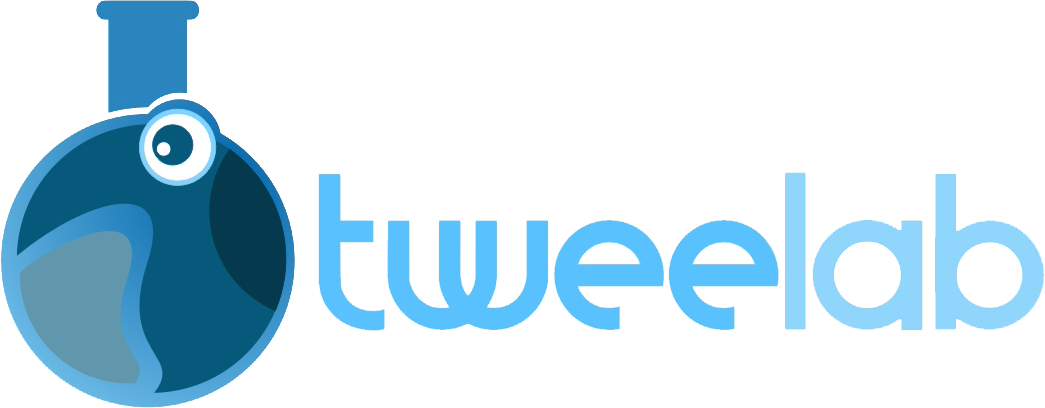Hey there, fellow SEO enthusiasts! Welcome to my article on the basics of link building.
As we all know, search engine optimization (SEO) is a crucial aspect of any digital marketing strategy. However, many people tend to overlook the importance of link building in their SEO efforts.
Link building involves acquiring hyperlinks from other websites that direct traffic back to your own site. These links serve as signals to search engines like Google and can greatly influence your website’s ranking in search results.
In this article, I’ll be sharing some essential tips and tricks for effective link building strategies that will help you boost your website’s visibility and increase organic traffic.
So buckle up and let’s dive into the world of SEO link building together!
Understanding The Importance Of Link Building In SEO

Link building is an essential aspect of search engine optimization (SEO) that can greatly impact a website’s visibility and success. Backlinks, or external links pointing to your site from other websites, are one of the most important factors in determining a website’s ranking on search engines like Google.
The benefits of backlinks cannot be overstated – they not only help drive traffic to your site but also establish authority and credibility for your brand. For small businesses looking to improve their online presence, link building strategies should be a top priority.
However, it is important to note that not all backlinks are created equal. Quality over quantity is key when it comes to link building. High-quality backlinks from reputable sources will have a much greater impact on your SEO than numerous low-quality ones.
There are several effective link building strategies for small businesses, including guest blogging, broken link building, and influencer outreach. These tactics involve creating valuable content or reaching out to industry leaders in order to earn high-quality backlinks.
By consistently implementing these strategies as part of a comprehensive SEO plan, small businesses can significantly boost their online visibility and ultimately drive more conversions and sales.
Types Of Links and Their Significance

Inbound links are essential for SEO link building, as they showcase the popularity of your website to search engines.
Outbound links, when used correctly, can increase your website’s credibility and reputation.
Quality of links is key; it’s important to ensure you’re getting links from credible, authoritative sources.
Relevance of links is also important; it’s essential to ensure your links are related to your content to be successful.
Inbound Links
As a seasoned SEO link building expert, I know that inbound links are crucial to any successful website optimization strategy. Inbound links, also known as backlinks, are incoming hyperlinks from one website to another and play an important role in determining the domain authority of a site.
The significance of inbound links cannot be overstated, as they help search engines determine the relevance and credibility of your website. Anchor text is one of the critical elements of inbound links. Anchor text refers to the clickable words or phrases within a hyperlink that direct users to other pages on your site or external websites.
When used strategically, anchor text can positively impact your website’s search engine rankings by signaling to Google what keywords or topics you want your page to rank for. However, it’s essential to avoid over-optimizing anchor texts as this could lead to penalties from search engines. Domain authority is yet another significant aspect linked with inbound links.
It measures how well a particular website ranks against others in its niche or industry using various metrics such as traffic volume, quality of content, and number of high-quality backlinks pointing at it. Having more reputable sites linking to your web pages will improve their overall ranking and increase their visibility in search results pages (SERPs).
As an expert in SEO link building, my advice would be always to focus on creating high-quality content that naturally attracts relevant and authoritative inbound links rather than indulging in black hat practices like buying backlinks or participating in link schemes.
Outbound Links
Now that we’ve discussed inbound links and their importance in website optimization let’s move on to outbound links.
Outbound links are hyperlinks from your website to other external sites, which can help improve the user experience by providing additional information or resources related to your content.
While some may think that linking out could potentially harm your site’s link authority, it actually does the opposite when done correctly.
Linking out to authoritative sources shows search engines that you’re providing valuable information to users and can increase your website’s relevance and credibility within its niche.
When it comes to outbound links, link relevance is critical. Ensure that any external pages you’re linking out to are relevant and align with your content’s topic.
By doing so, not only will you provide a better user experience for readers but also signal Google about the context of your page, thereby increasing its chances of ranking higher in SERPs.
Overall, incorporating strategic outbound links as part of an SEO strategy can have significant benefits for both user satisfaction and website performance.
Creating Quality Content To Attract Links

After learning about the different types of links and their significance, it’s important to focus on creating quality content that will attract those links.
Think of your website as a garden – you need to plant seeds (content) in order for it to grow and flourish. But just like with gardening, not all plants are created equal. You need to do some research and figure out what kind of soil (keywords) your plants need in order to thrive.
This is where keyword research comes in. By figuring out which keywords are relevant and popular within your industry, you can optimize your content for search engines and increase its visibility. This means more people are likely to find your website, share your content, and ultimately link back to it.
Another effective way to build links is through guest blogging. This involves writing articles or blog posts for other websites within your industry, and including a link back to your own site within the content.
Not only does this help establish you as an authority within your field, but it also exposes your website to a wider audience who may be interested in what you have to offer.
Remember, building high-quality links takes time and effort. But by focusing on producing valuable content that speaks directly to your target audience’s needs and interests, you’ll be well on your way towards establishing a strong online presence that attracts natural links from reputable sources without having to resort to shady tactics or shortcuts.
Building Relationships With Other Websites

When it comes to SEO link building, one crucial aspect that many people overlook is the importance of building relationships with other websites. This involves reaching out to webmasters and influencers in your niche and establishing a rapport. By doing so, you can increase your chances of getting backlinks from authoritative sites.
One effective way to build these relationships is through guest blogging. Guest blogging entails writing content for another website while including a backlink to yours within the post or author bio. Not only does this help drive traffic to your site, but it also establishes you as an authority in your field, which can lead to more collaboration opportunities down the line.
Another tactic for relationship-building is influencer outreach. This involves identifying influential figures in your industry and reaching out to them via social media or email. By offering value upfront and showing genuine interest in their work, you can establish a connection that may lead to collaborations or mentions on their site.
By taking the time to build relationships with other websites and influencers, you are setting yourself up for long-term success in SEO link building. While it may take some effort initially, the benefits far outweigh the costs when it comes to growing your online presence.
So don’t be afraid to reach out and start building those connections today!
Using Social Media For Link Building

Finding quality links is key when it comes to link building, and leveraging social media is an excellent way to do that.
Maximizing reach on social platforms is the next step, and that means knowing how to optimize your content for each platform to get the most out of it.
With the right approach, social media can be an invaluable tool for link building – you just have to know how to use it right.
Let’s dive into the details of finding quality links and maximizing reach on social media.
Finding Quality Links
Looking for ways to improve your website’s ranking in search engine results pages (SERPs)? Look no further than link building. When it comes to boosting your site’s visibility and authority, one of the most effective strategies is using social media for link building.
However, not all links are created equal – you need to find quality ones that will help you climb up the SERP ladder. One way to do this is through link outreach. This involves reaching out to other websites or blogs in your industry and asking if they’d be willing to include a backlink to your site in their content.
But how do you find these sites? Start by conducting a thorough backlink analysis of your competitors’ sites. By identifying where they’re getting their links from, you can gain valuable insights into potential linking opportunities for yourself. Another key factor when looking for quality links is relevance.
The more relevant a site is to your niche or industry, the better its link will be for boosting your SEO efforts. So don’t just focus on high-authority sites – make sure they’re also highly relevant to what you offer. With these tips in mind, you can start harnessing the power of social media for link building and watch as your website climbs higher and higher in the SERPs!
Maximizing Reach On Social Media
Now that we have discussed the importance of link building and how to find quality links, let’s move on to maximizing reach on social media. Social media engagement is crucial for any successful digital marketing campaign. When it comes to link building, your social media channels can be a powerful tool for reaching out to potential linking partners.
One effective way to maximize your social media reach is through influencer marketing. Influencers are individuals or brands with a large following on social media who can help promote your content and products to their audience. By partnering with relevant influencers in your niche, you can increase visibility for your brand and potentially gain valuable backlinks as well.
In addition to working with influencers, there are other strategies you can use to boost your social media presence and drive traffic back to your site. This includes:
- Regularly posting high-quality content across all platforms
- Engaging with followers by responding to comments and messages
- Using hashtags strategically to expand your reach beyond just your immediate followers
By taking these steps, you’ll not only improve your chances of obtaining quality backlinks but also attract more organic traffic and ultimately boost your SEO efforts overall.
Avoiding Black Hat Link Building Tactics

Imagine you are a traveler on an adventure through the vast world of search engine optimization.
You come across two paths: one is white and pure, while the other is dark and treacherous.
The first path represents using only ethical practices in link building, known as white hat techniques.
The second path symbolizes black hat tactics that manipulate search engines to gain rankings without regard for user experience or quality content.
As tempting as it may be to take shortcuts down the black hat path, the consequences can be severe.
Search engines like Google have strict guidelines against such unethical behavior and will penalize websites caught engaging in these tactics.
Your site could suffer from lower rankings, loss of traffic, and even being banned altogether from appearing in search results.
Fortunately, there are many white hat alternatives available that follow best practices and provide long-term benefits for your website’s success.
These include creating high-quality content that naturally attracts links, guest blogging on reputable sites within your industry, and utilizing social media platforms to build relationships with influencers who can share your content with their followers.
By following these methods, not only will you avoid the negative impact of black hat tactics but also improve your overall online presence in a sustainable way.
Measuring The Success Of Your Link Building Campaigns

Now that we’ve discussed the importance of avoiding black hat tactics in link building, let’s focus on measuring the success of your campaigns.
It’s crucial to keep track of how your links are performing and adjust your strategy accordingly. This is where link metrics come into play.
Link metrics measure the quality and quantity of your backlinks. By analyzing these metrics, you can determine which links are driving traffic to your website and which ones aren’t. Some important link metrics include domain authority, page authority, anchor text distribution, and link relevancy. Use tools like Moz or Ahrefs to monitor these metrics regularly.
Once you have a clear understanding of your link metrics, it’s time to assess conversion rates.
Conversion rates indicate how many visitors take action on your website after clicking through from a backlink. For example, if someone clicks on a link to purchase a product but doesn’t complete the transaction, this is considered a lost conversion opportunity. Analyzing conversion rates will help you optimize your landing pages and calls-to-action for maximum impact.
To summarize, monitoring both link metrics and conversion rates is vital for evaluating the effectiveness of your link building campaign. Keep a close eye on these factors over time and make adjustments as needed to improve overall performance.
Remember that successful SEO involves an ongoing process of experimentation and refinement – there’s always room for improvement!
Key Takeaways
- Link building is a crucial aspect of SEO and can greatly impact a website’s visibility and success.
- Backlinks from reputable sources help drive traffic, establish authority, and improve ranking.
- Quality and relevance of links are important factors to consider in link building.
- Inbound links (backlinks) play a significant role in determining a site’s domain authority and credibility.
- Anchor text in inbound links can positively impact search engine rankings.
- Outbound links can enhance credibility and provide additional information to users.
- Creating high-quality content is essential for attracting natural backlinks.
- Building relationships with other websites and influencers can lead to backlink opportunities.
- Social media can be utilized for link building by reaching out to potential linking partners.
- Black hat tactics should be avoided as they can lead to penalties from search engines.
- Monitoring link metrics and conversion rates helps measure the success of link building campaigns.
Useful Table
| Type of Link | Description |
|---|---|
| Inbound Links | Backlinks from other websites that point to your site, helping establish relevance, credibility, and domain authority. |
| Outbound Links | Hyperlinks from your website to external sites, enhancing user experience, credibility, and indicating context to search engines. |
| Anchor Text | Clickable words or phrases within a hyperlink that direct users to other pages, influencing search engine rankings for specific topics. |
| Quality Content | Valuable and relevant content that attracts natural backlinks and engages users. |
| Relationship | Building connections and rapport with other websites and influencers to increase the chances of obtaining authoritative backlinks. |
| Social Media | Leveraging social platforms to find quality links, maximize reach, and engage with potential linking partners and influencers. |
| Black Hat | Unethical tactics that manipulate search engines for rankings, risking penalties and negative impact on website visibility and traffic. |
| Link Metrics | Measurements of backlink quality and quantity, including domain authority, page authority, anchor text distribution, and relevancy. |
| Conversion Rates | Assessing the percentage of visitors who take desired actions on your website after clicking through backlinks. |
Frequently Asked Questions
What is link building and why is it important for SEO?
Link building is the process of acquiring hyperlinks from other websites that direct traffic back to your own site. It is important for SEO because these links serve as signals to search engines and can greatly influence your website’s ranking in search results. They also help drive traffic, establish authority, and improve credibility for your brand.
What are inbound links and why are they significant for SEO?
Inbound links, also known as backlinks, are incoming hyperlinks from one website to another. They play a crucial role in determining a website’s domain authority and credibility. Inbound links help search engines determine the relevance and credibility of your website. Quality and relevance of inbound links are key factors in improving your SEO and increasing visibility in search results.
How do outbound links affect SEO?
Outbound links are hyperlinks from your website to external sites. When used correctly, they can increase your website’s credibility and reputation. Linking out to authoritative sources shows search engines that you’re providing valuable information to users and can improve your website’s relevance and credibility within its niche. Link relevance is critical, so ensure that external pages you link to are relevant to your content.
How can I create quality content to attract links?
Creating quality content is crucial for attracting links. Conduct keyword research to optimize your content for search engines and increase its visibility. Guest blogging on relevant websites within your industry and including a link back to your own site is an effective way to attract links and establish authority. Focus on producing valuable content that addresses your target audience’s needs and interests.
How can I measure the success of my link building campaigns?
To measure the success of your link building campaigns, monitor link metrics such as domain authority, page authority, anchor text distribution, and link relevancy. Use tools like Moz or Ahrefs to analyze these metrics regularly. Additionally, assess conversion rates to determine how many visitors take action on your website after clicking through from a backlink. Continuously monitor and adjust your strategy based on these metrics to improve overall performance.
Final Thoughts
In conclusion, link building is an essential part of any SEO strategy.
By creating quality content and building relationships with other websites through natural means, you can attract valuable links that will improve your website’s visibility and authority.
However, it’s important to avoid black hat tactics such as buying or exchanging links, which can ultimately hurt your rankings in the long run.
Instead, focus on measuring the success of your campaigns and continuously improving your link building efforts for optimal results.
Remember: Rome wasn’t built in a day, so be patient and persistent in your approach to link building. Happy optimizing!

